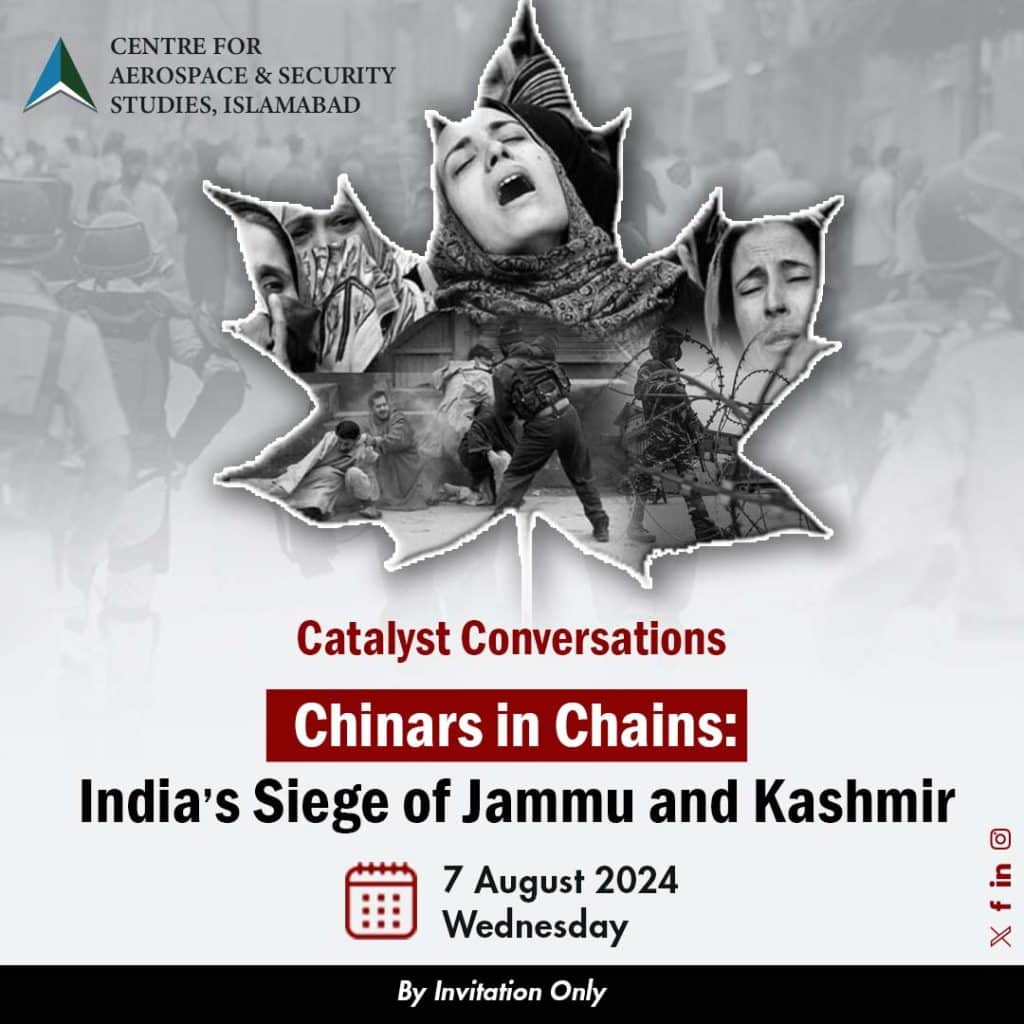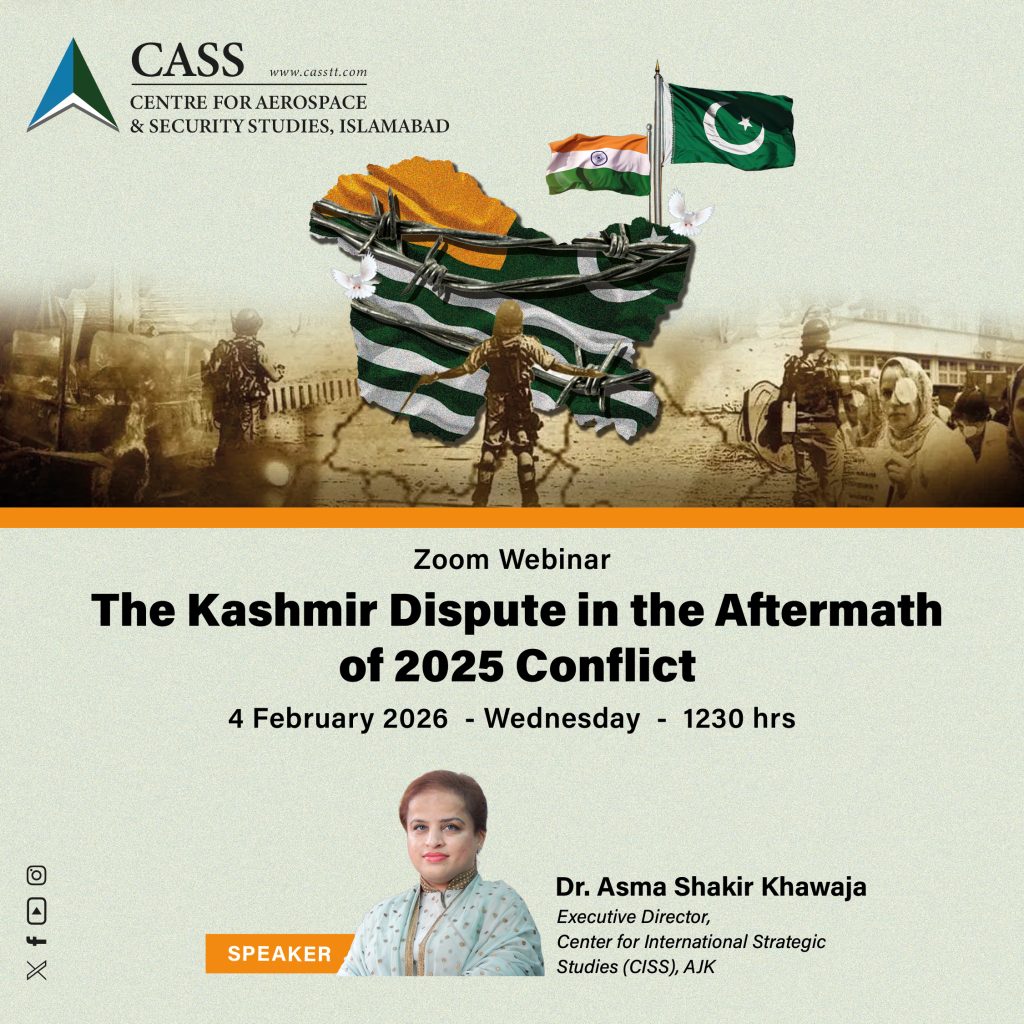Concept Note
Complete integration of Indian Illegally Occupied Jammu and Kashmir (IIOJK) with the Indian Union has always been one of the top priorities in the Hindutva agenda of the Bharatiya Janata Party (BJP) and Rashtriya Swayamsevak Sangh (RSS). Following the landslide victory of the BJP in the 2019 Indian General Elections, the government led by Narendra Modi swiftly announced the revocation of the special status of Jammu & Kashmir by repealing Articles 370 and 35A of the Indian Constitution on 5 August 2019. As a result, the State of Jammu & Kashmir was downgraded to the status of a union territory directly governed by New Delhi, while the Ladakh region was established as a separate administrative entity.
Following the announcement, the Indian government unleashed a reign of terror to instil an environment of fear and intimidation, aiming to quell the Kashmiris’ resistance to the illegal actions. Major cities were placed under curfew and communication with the outside world was severed by blocking the internet and media. Around 19,000 innocent Kashmiris including Hurriyat leaders, political activists, lawyers, human rights defenders and leaders of religious, trade and social organisations were arrested, while over 8 million Kashmiris were locked down in their homes without contact with the outside world. The prolonged military siege led to a serious humanitarian crisis, as the people faced acute shortage of essential commodities and life-saving drugs.
Any hope of getting justice was quashed after the Indian Supreme Court also validated the Indian government’s illegal action, and also sanctified the use of brute force by the Indian state to crush the Kashmiri freedom struggle.
Besides physical atrocities and repression, New Delhi also launched a series of draconian laws aimed at changing the demography of the disputed territory to convert the locals’ majority into a minority by opening the gates to an influx of non-Kashmiris. More than half a million Hindus from different parts of India have already acquired Kashmiri domiciles. One such draconian law authorises the Indian army to declare any land in the occupied territory as strategic and take it into its possession. Also, as part of its anti-Muslim policies, the BJP-led Indian regime has taken several steps to do away with the symbols and manifestations, which portrayed the inherent distinct character of Jammu and Kashmir.
Five years on, the Muslim majority of IIOJK continues to be marginalised in every domain of their lives. They remain subjected to the worst kind of exploitation and repression, while being disenfranchised in the land of their ancestors. Regrettably, the world, at large, remains a spectator of this tragedy.
To address the current situation in IIOJK, CASS is organising a special lecture as part of its Catalyst Conversations Series.
Press Release
News Coverage
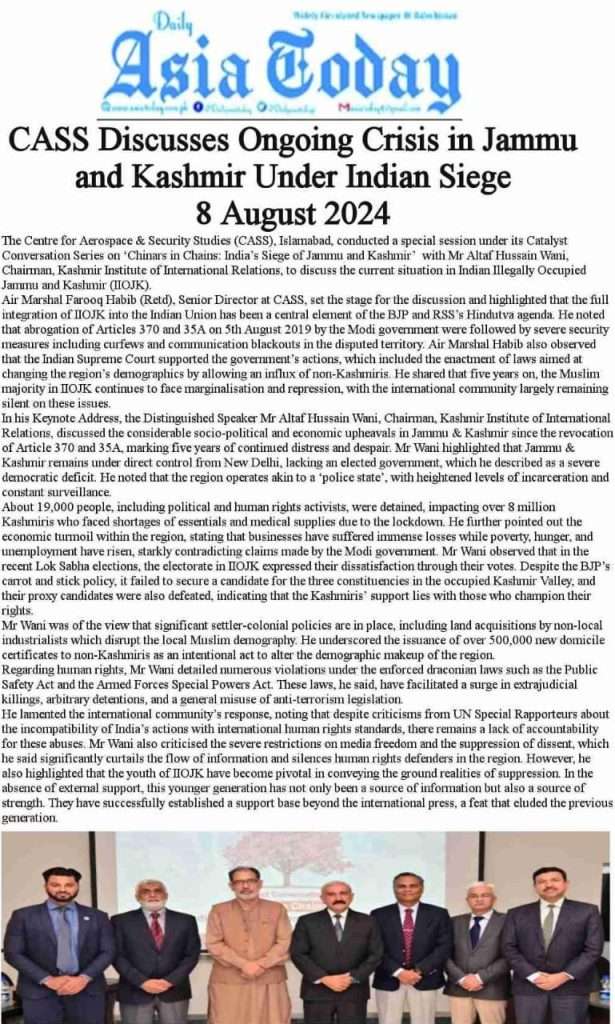
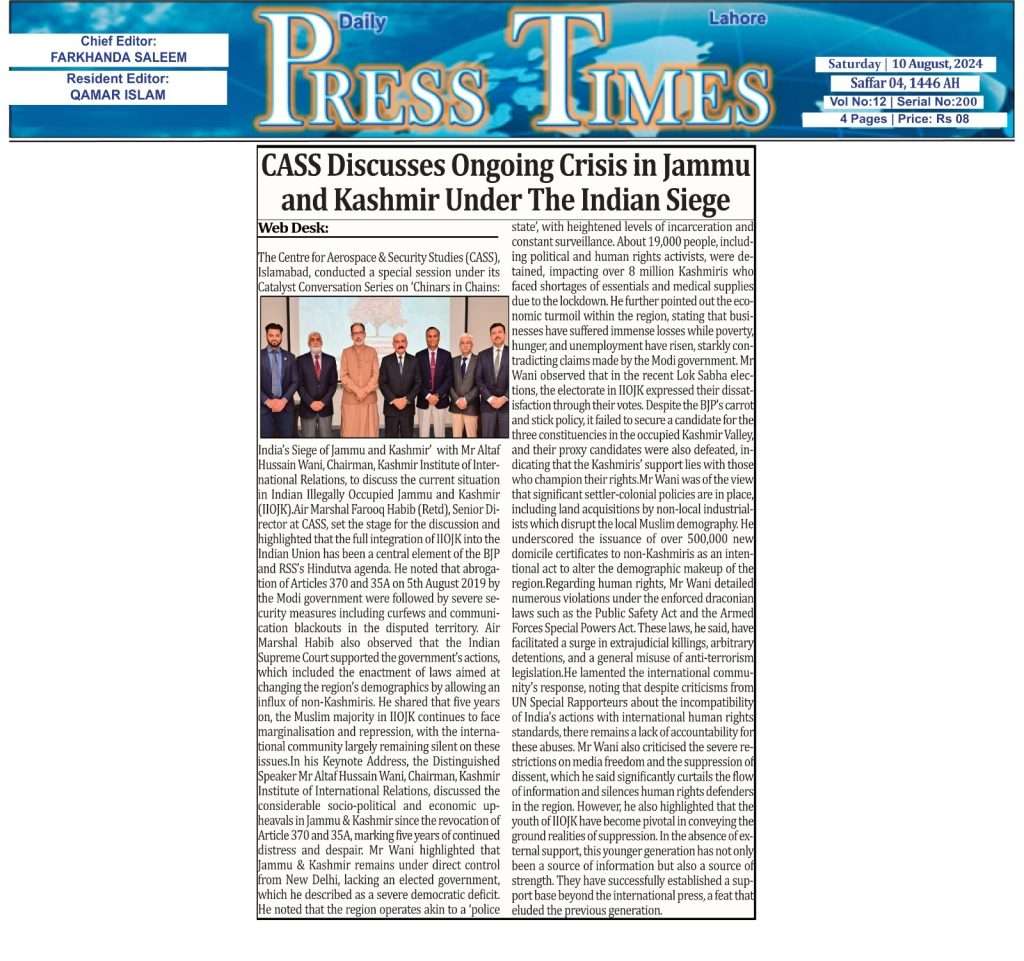
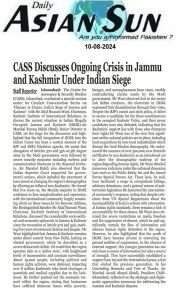
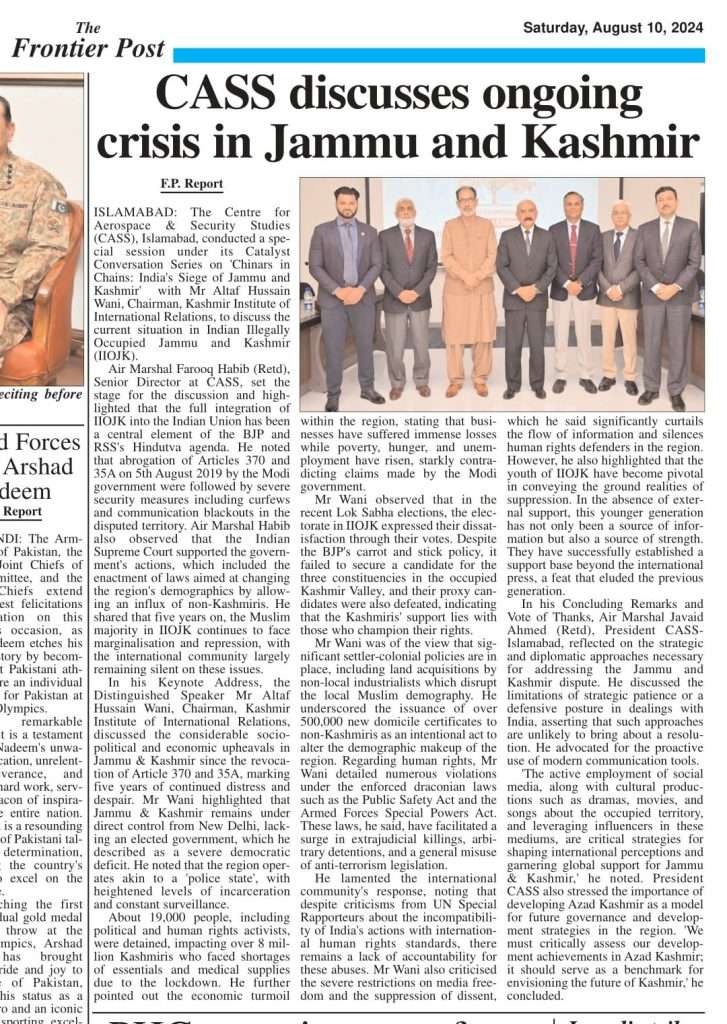
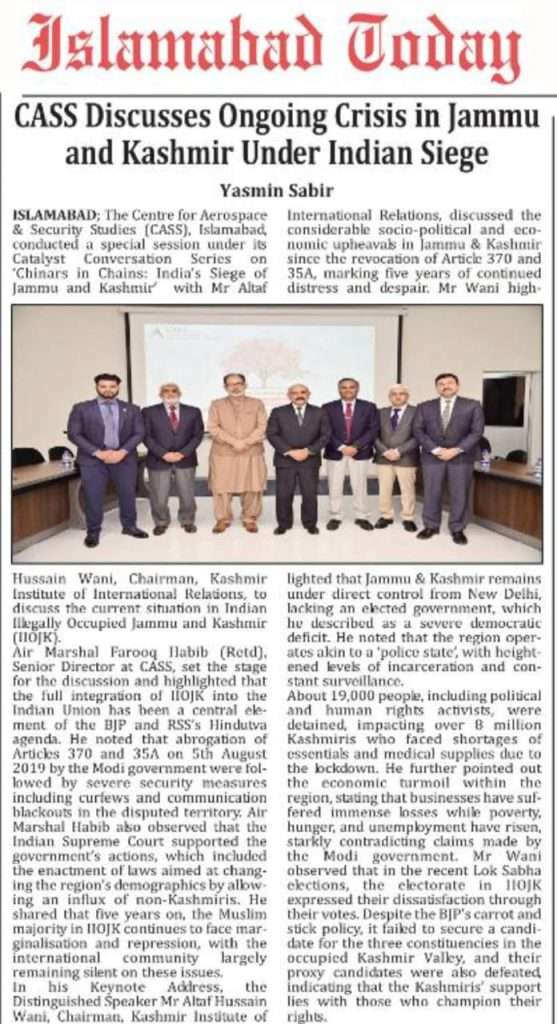
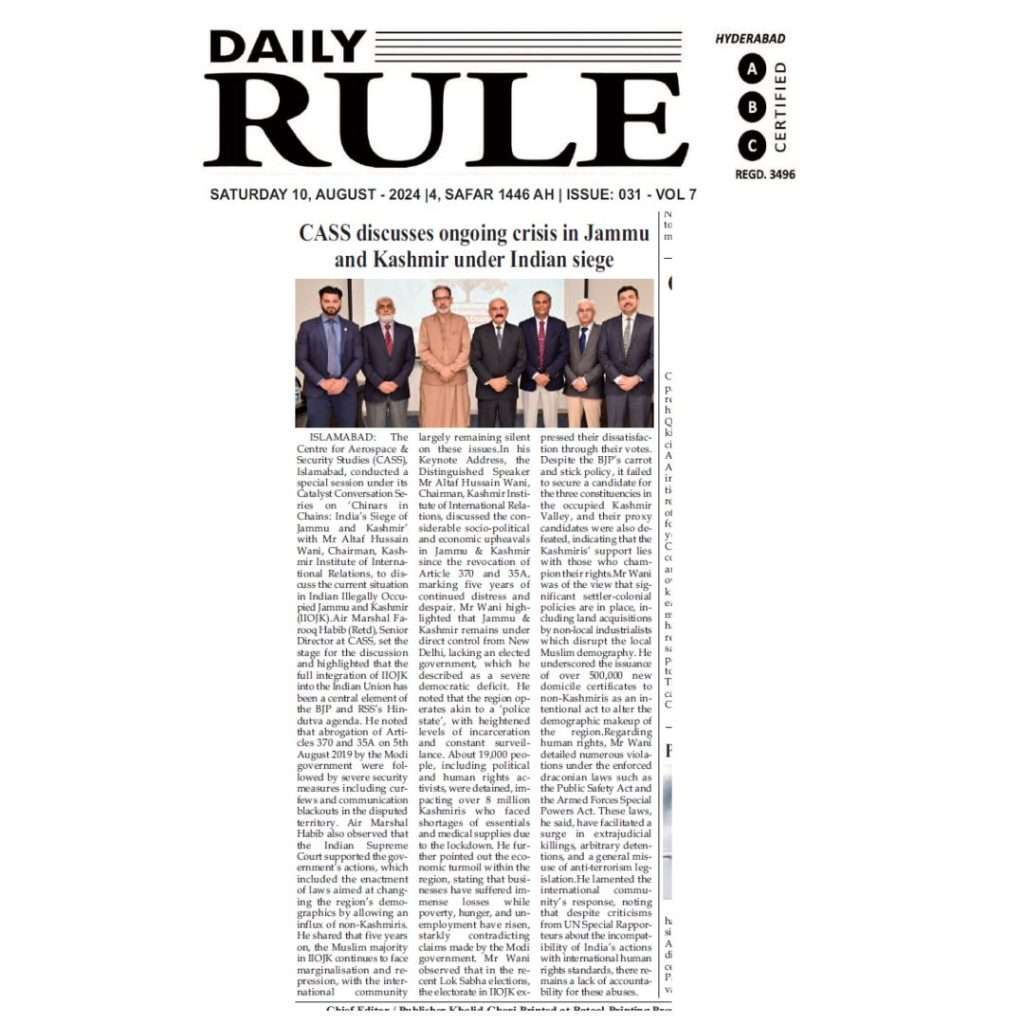
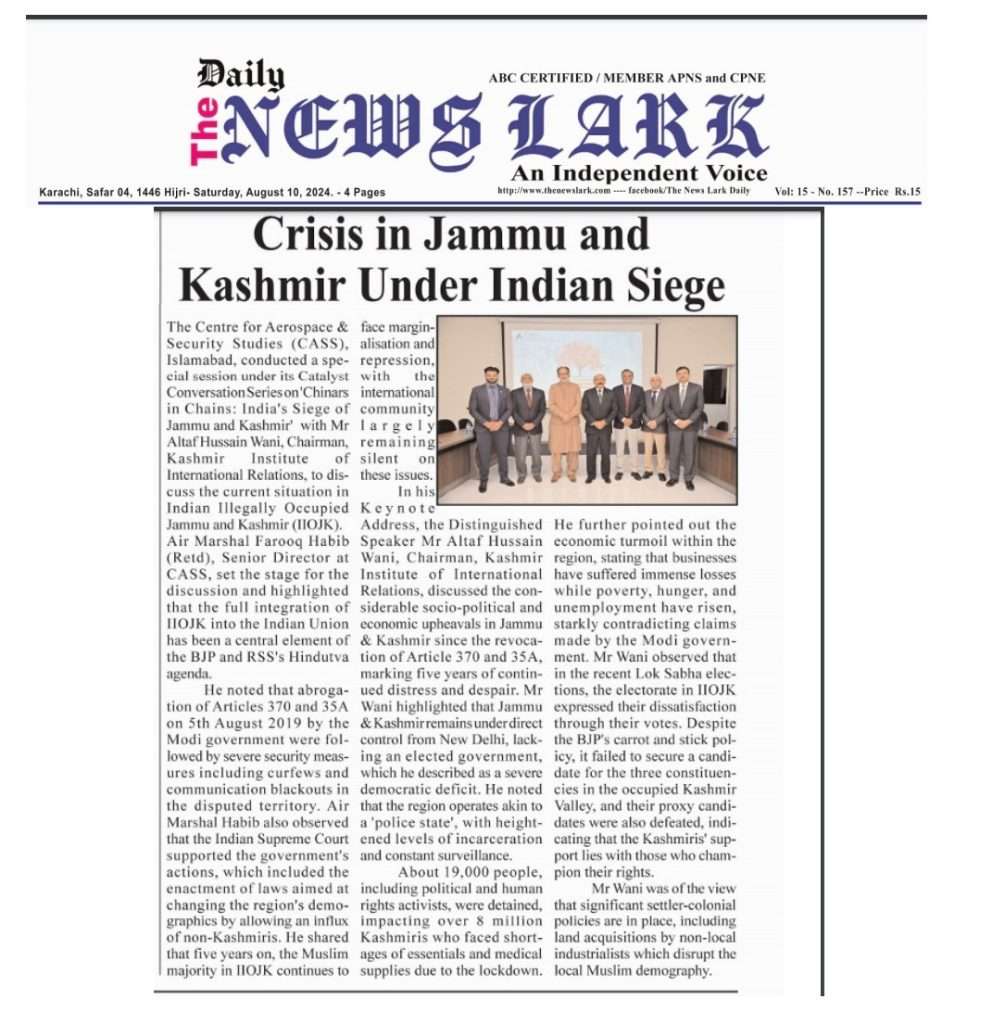
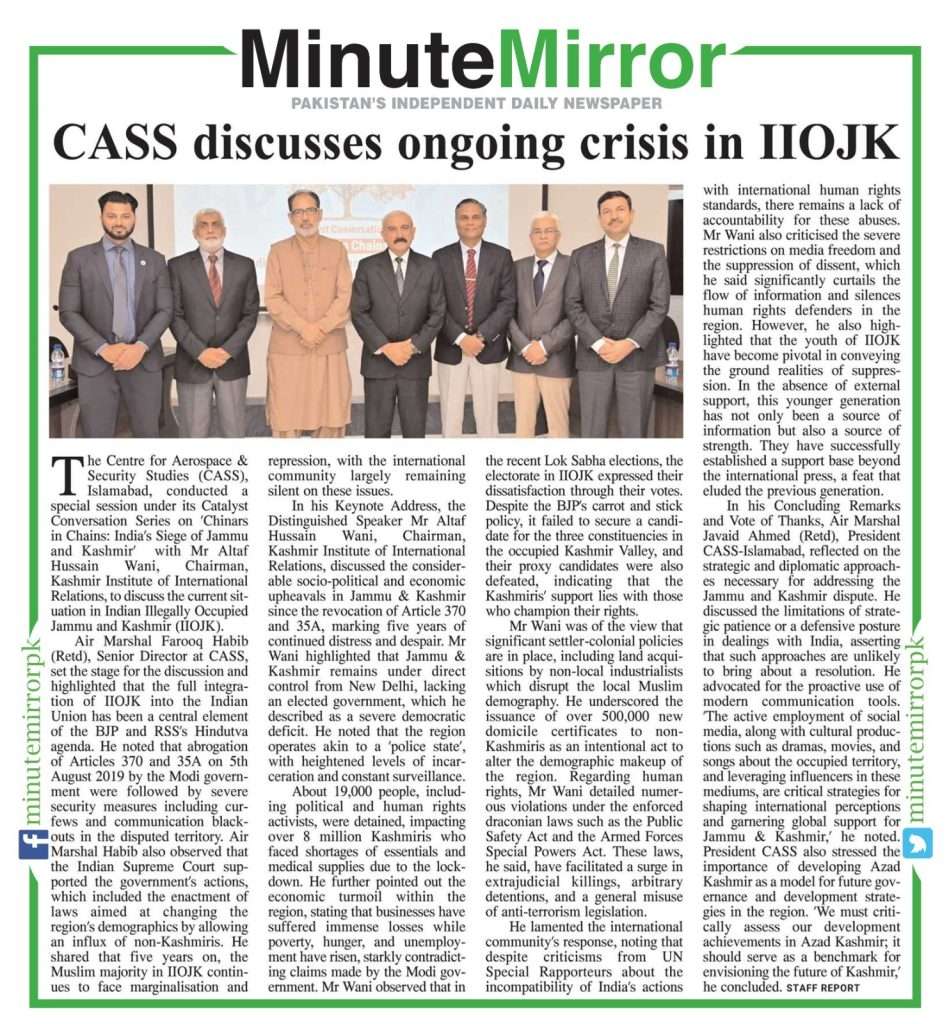
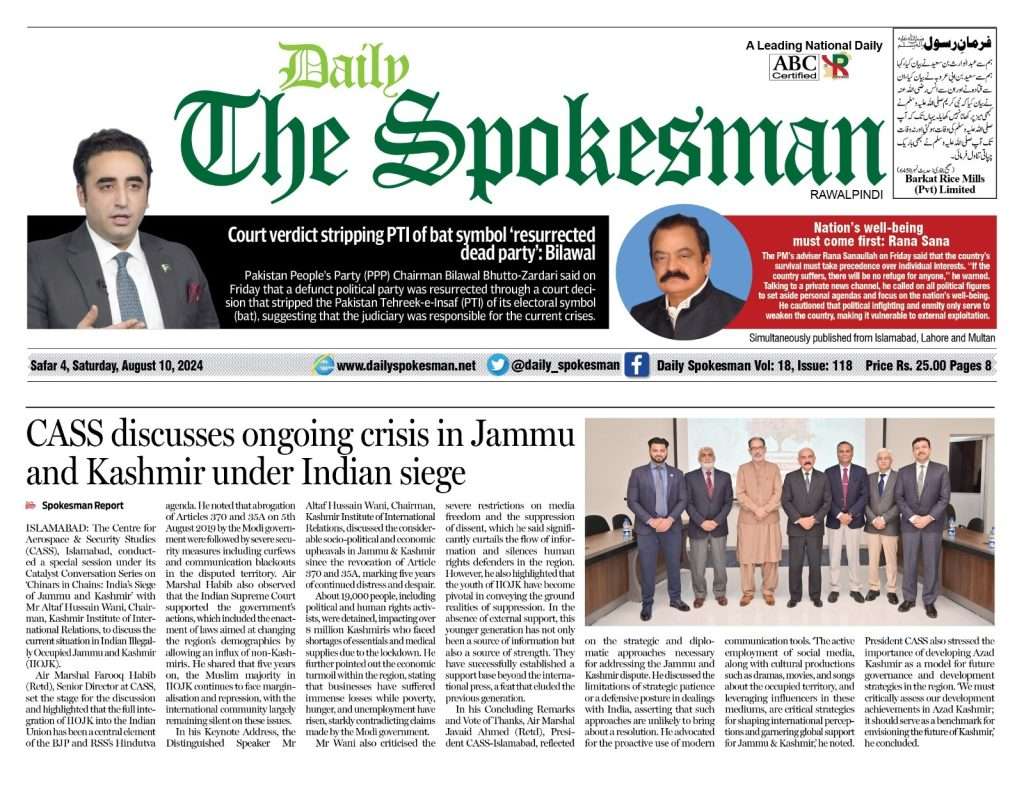
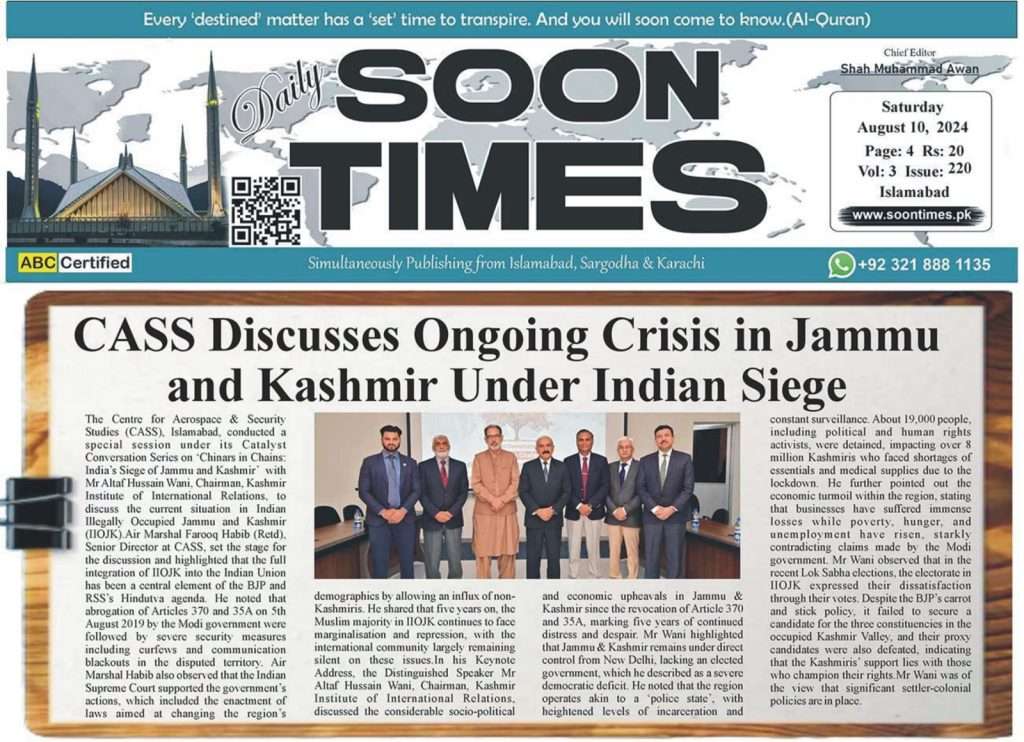
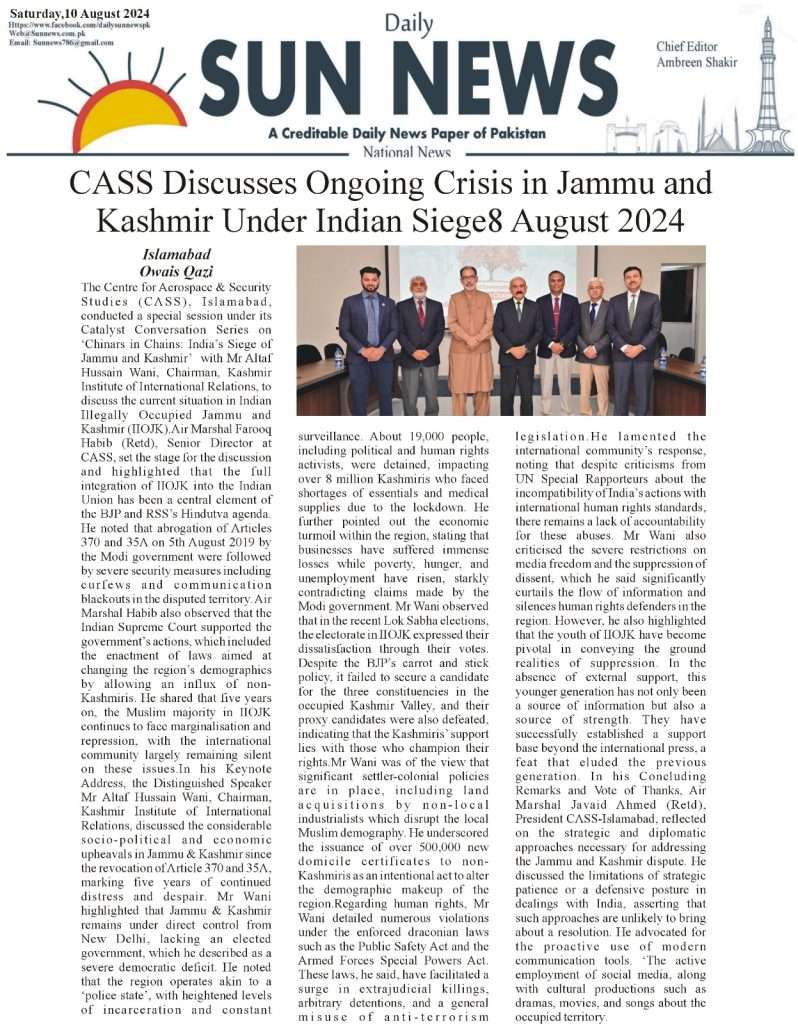
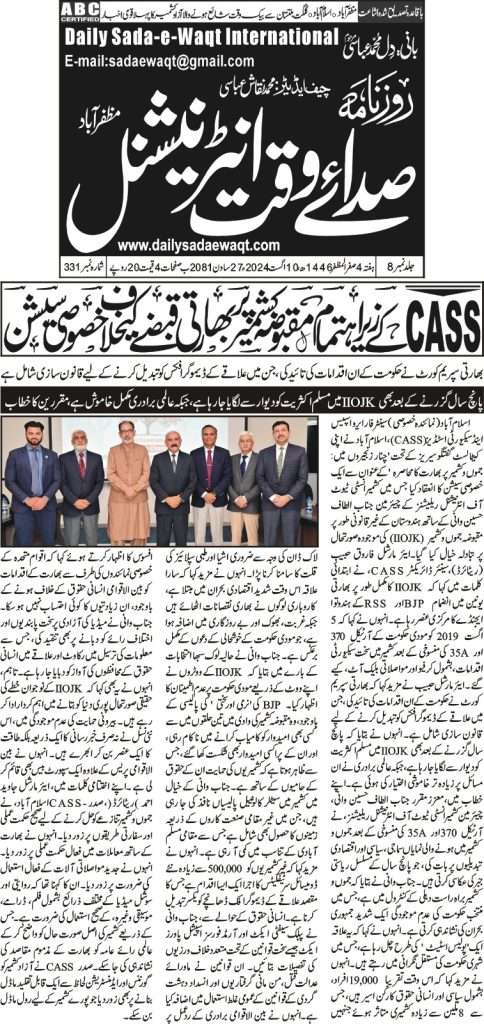
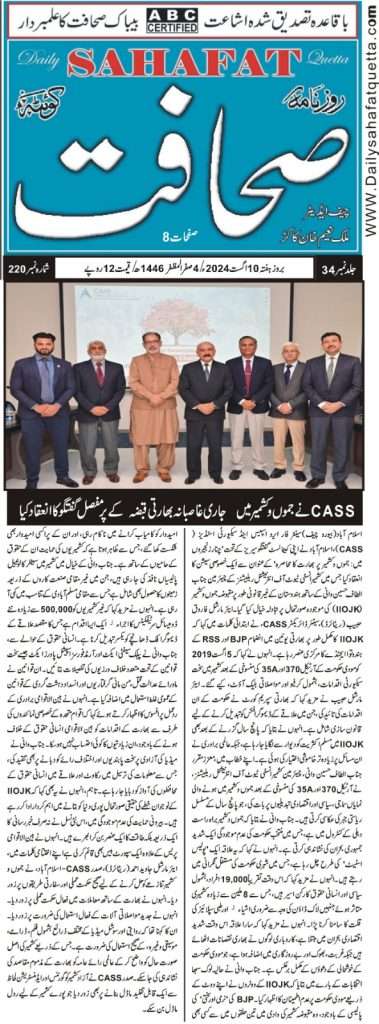
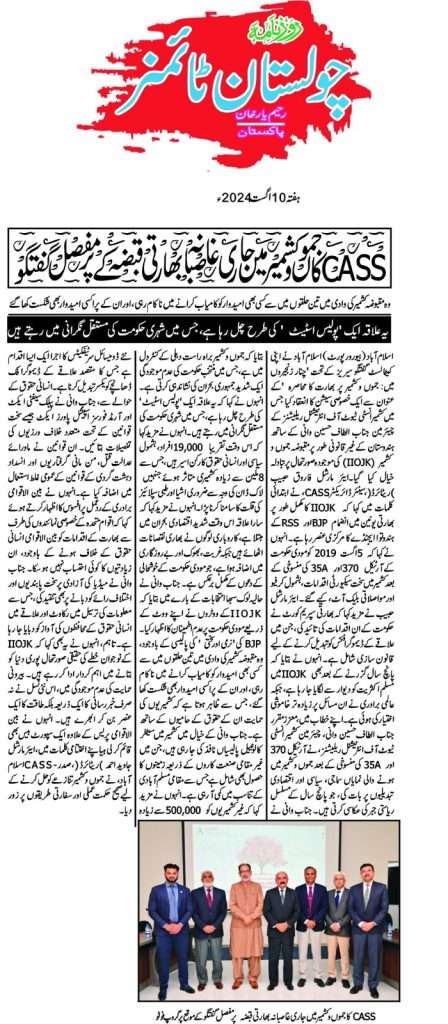

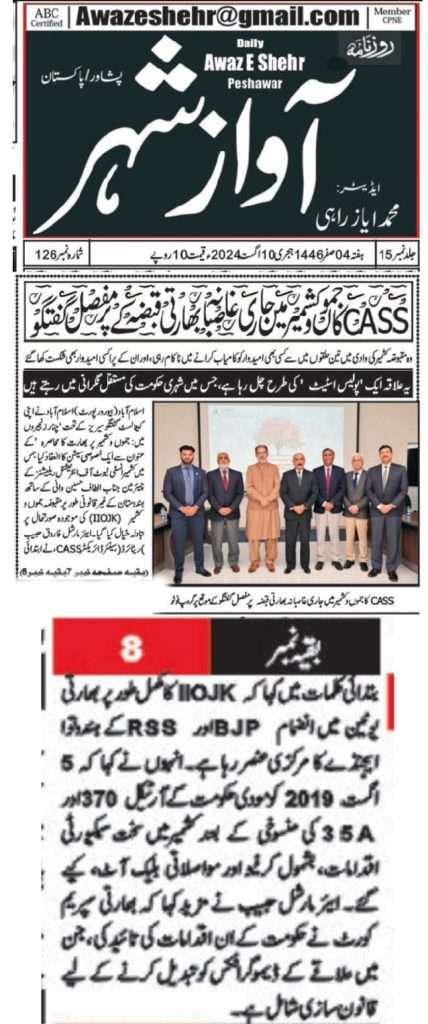
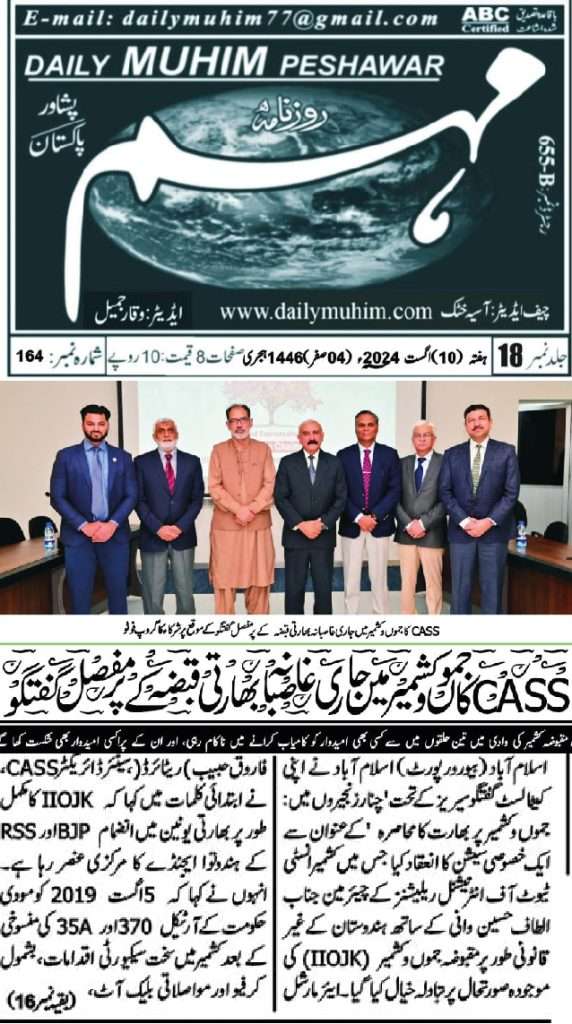
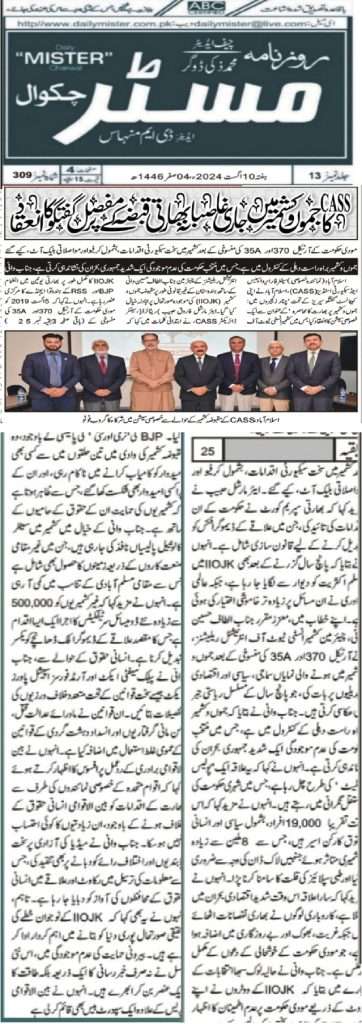
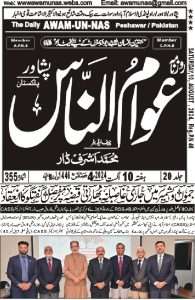
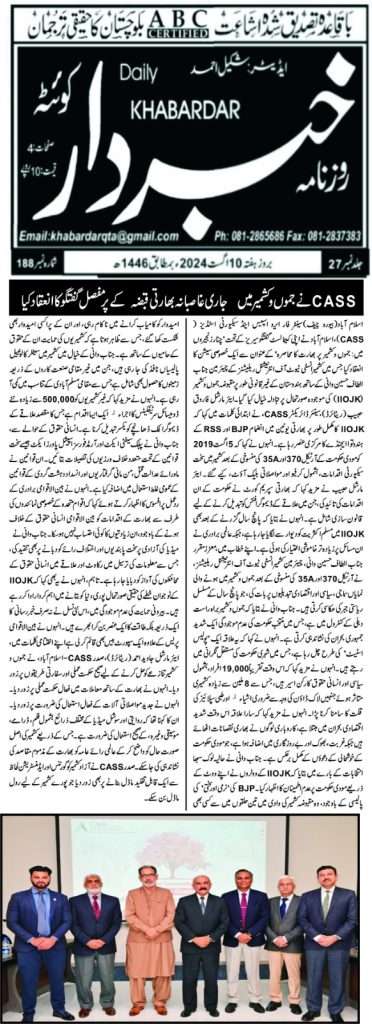
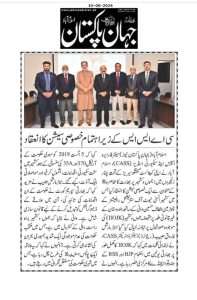
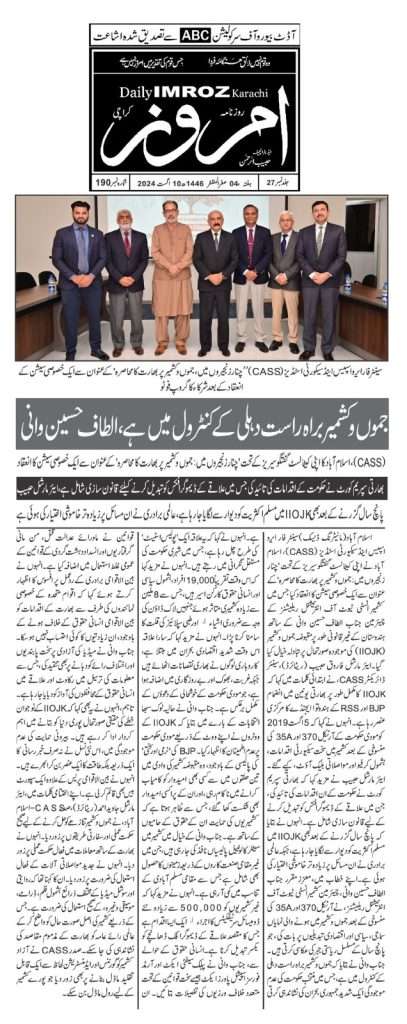
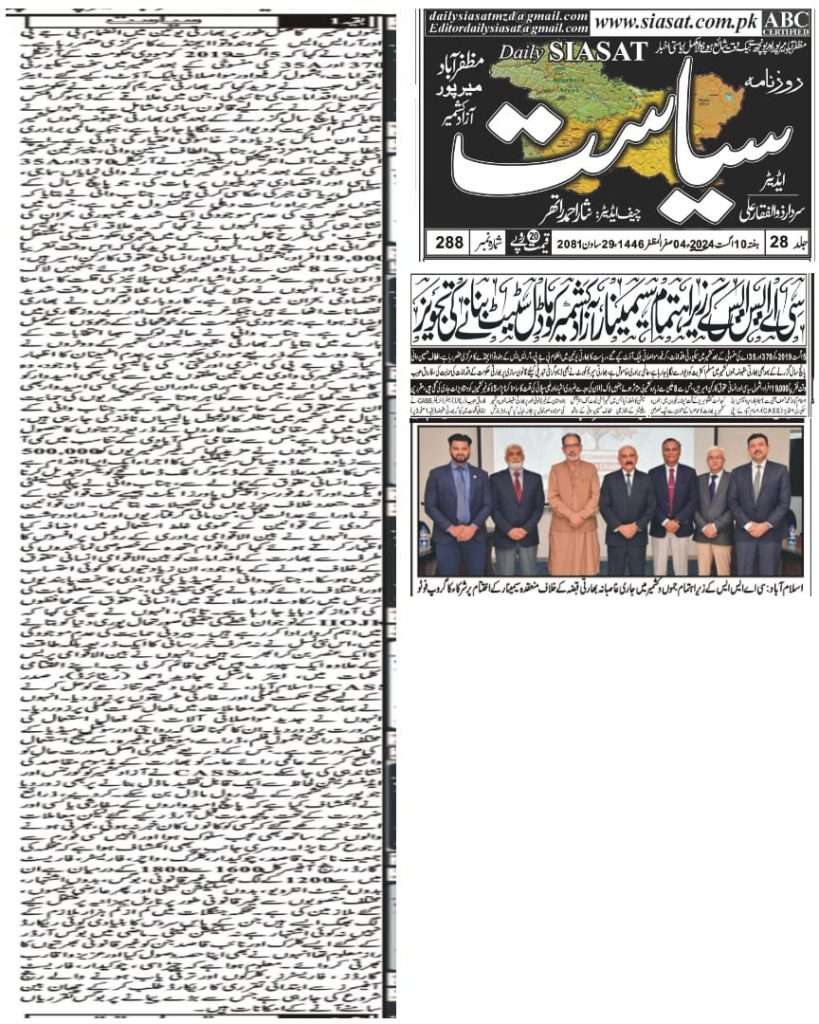
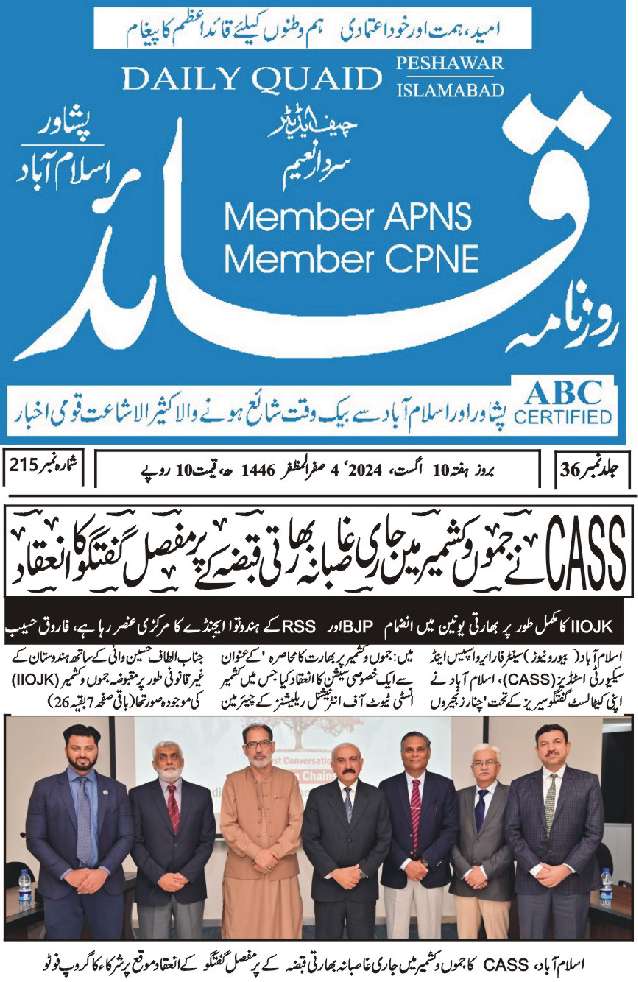
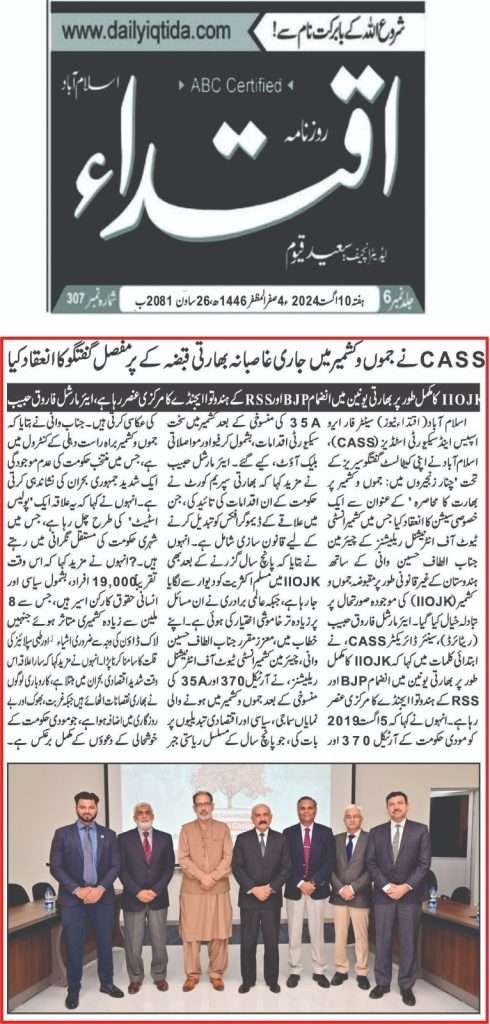


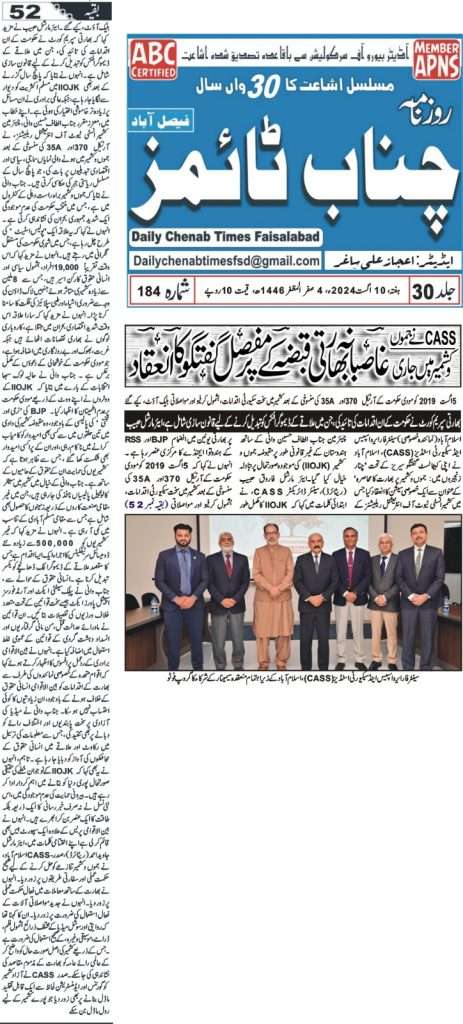

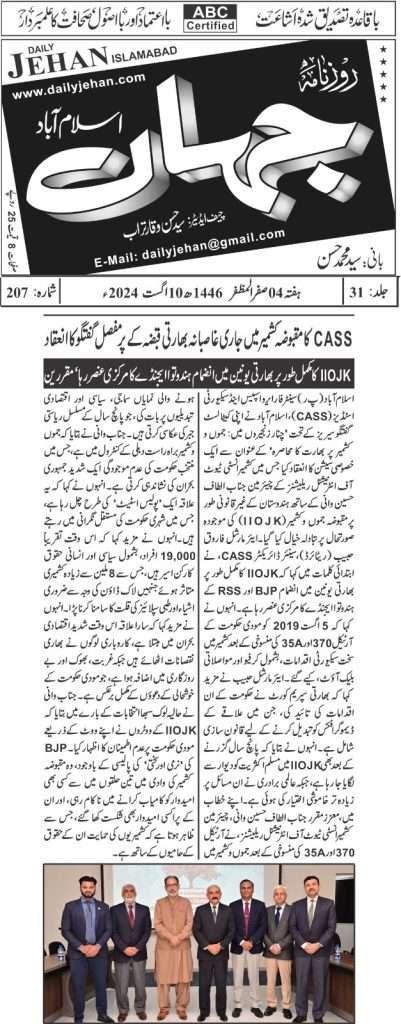
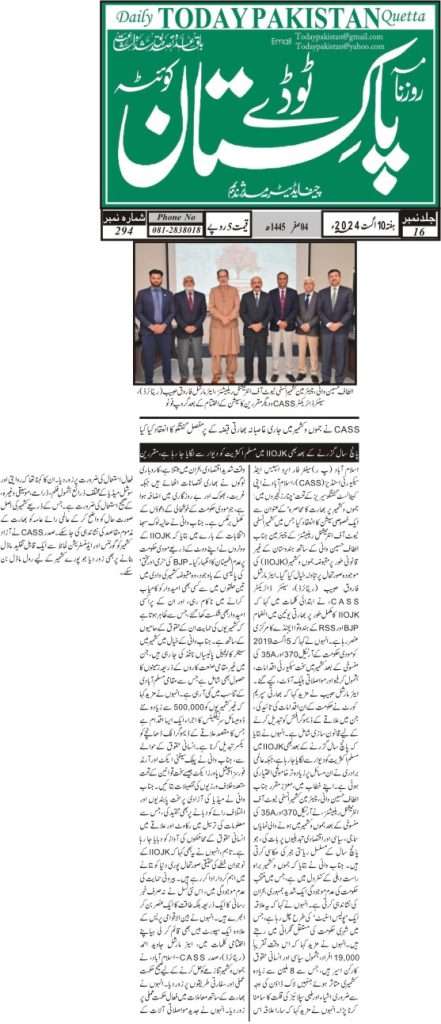
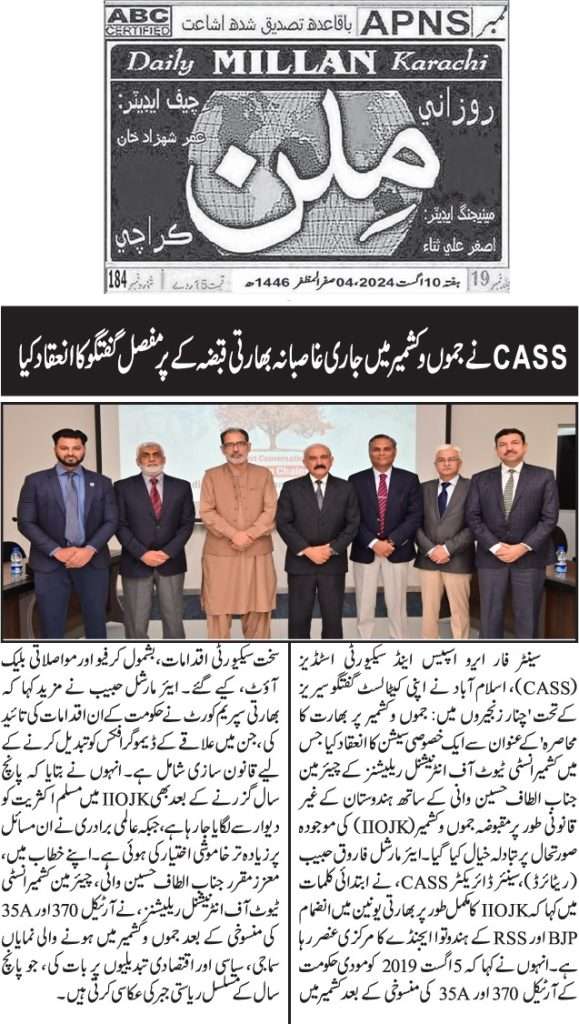
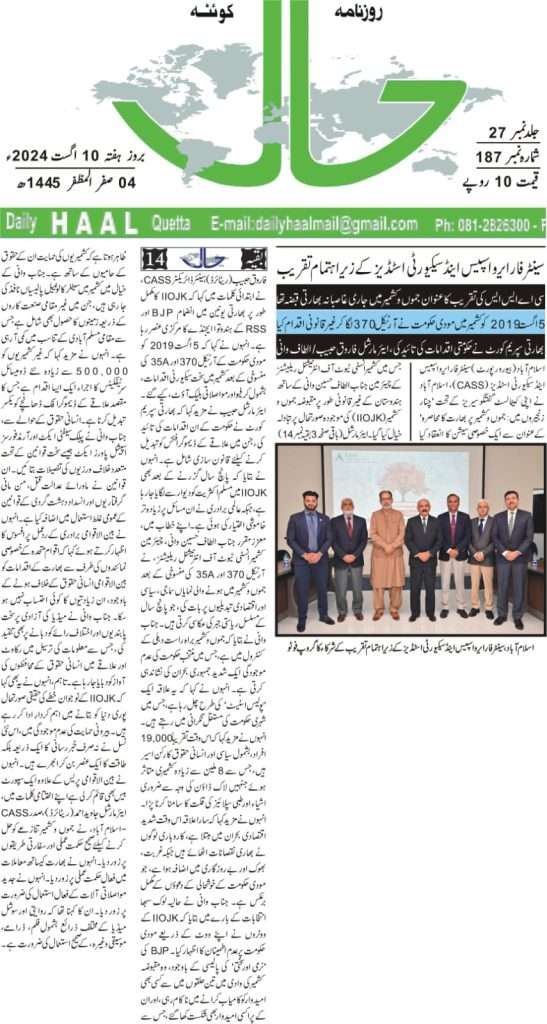
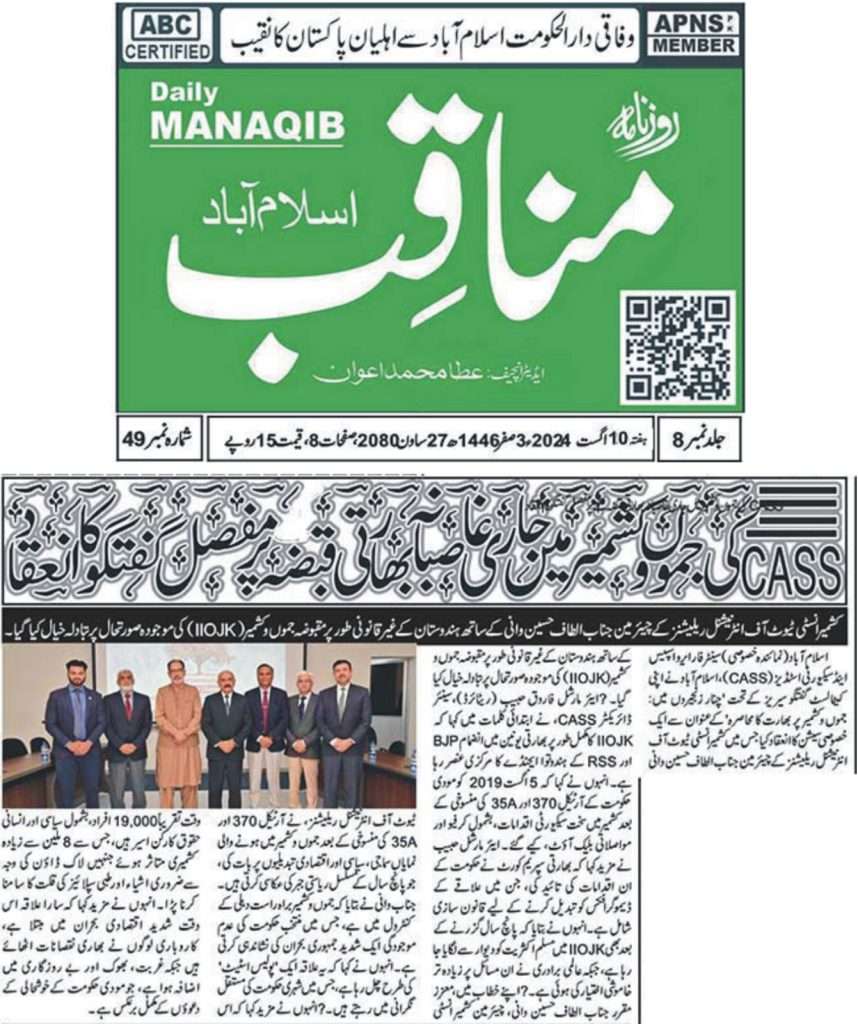
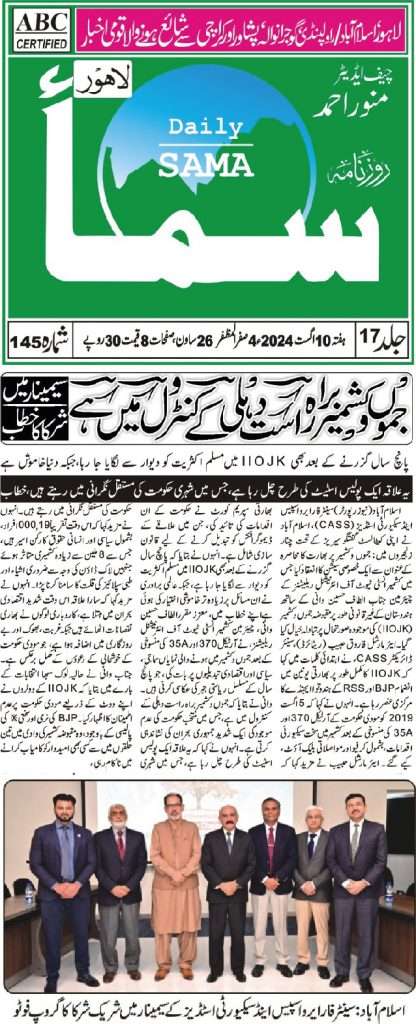
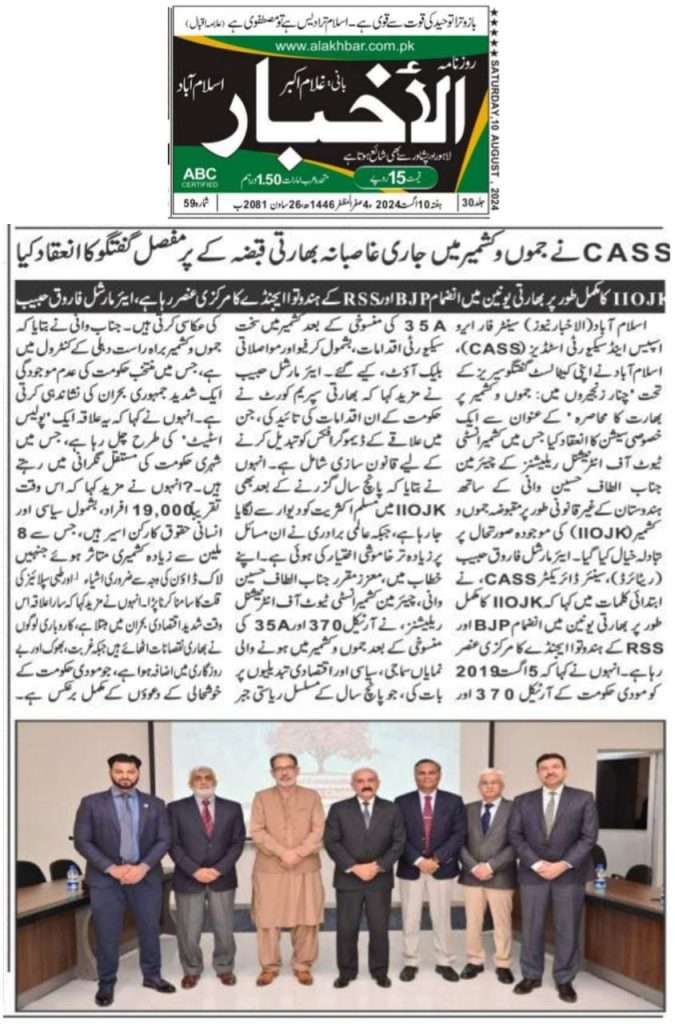
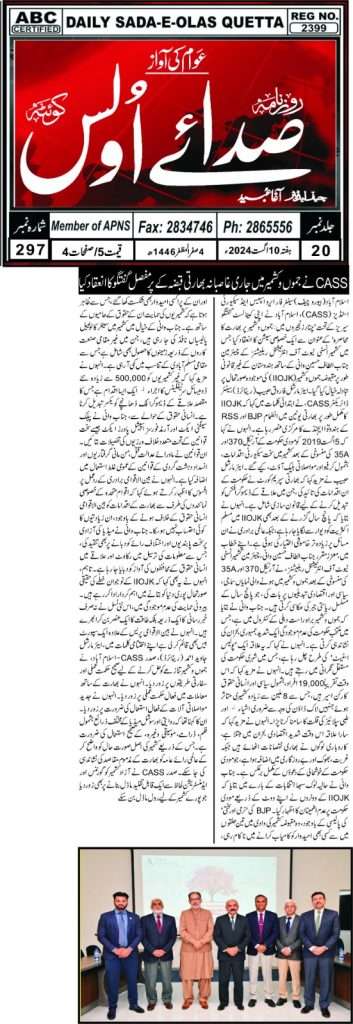
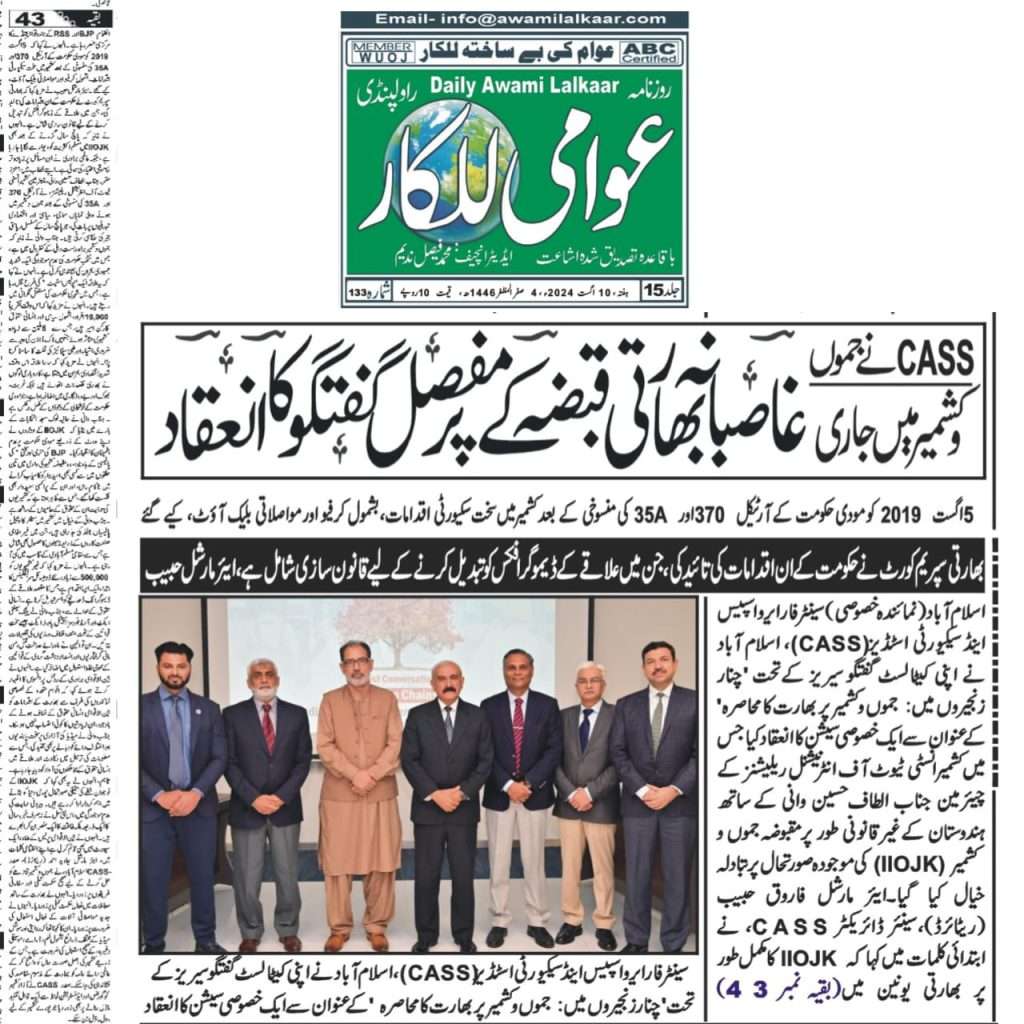
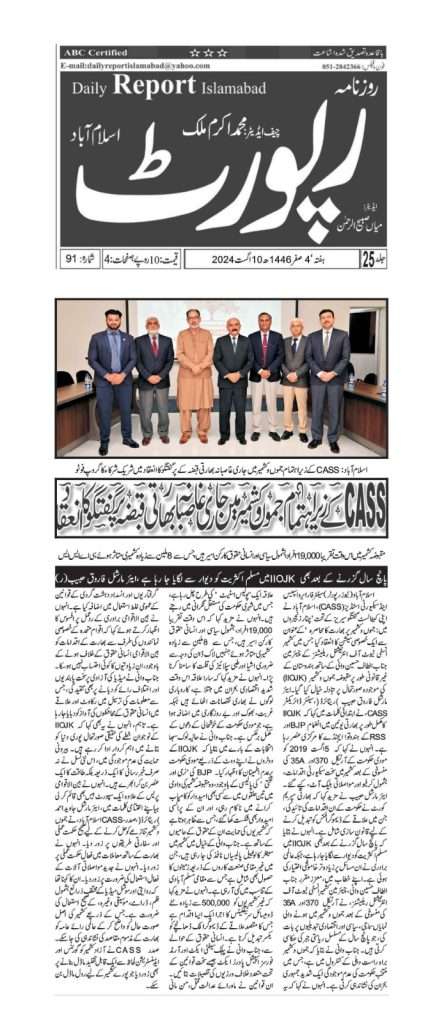

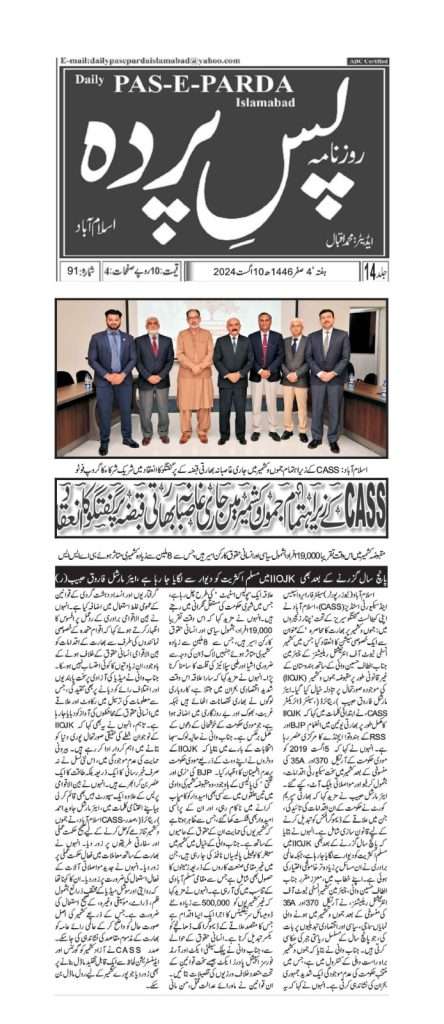
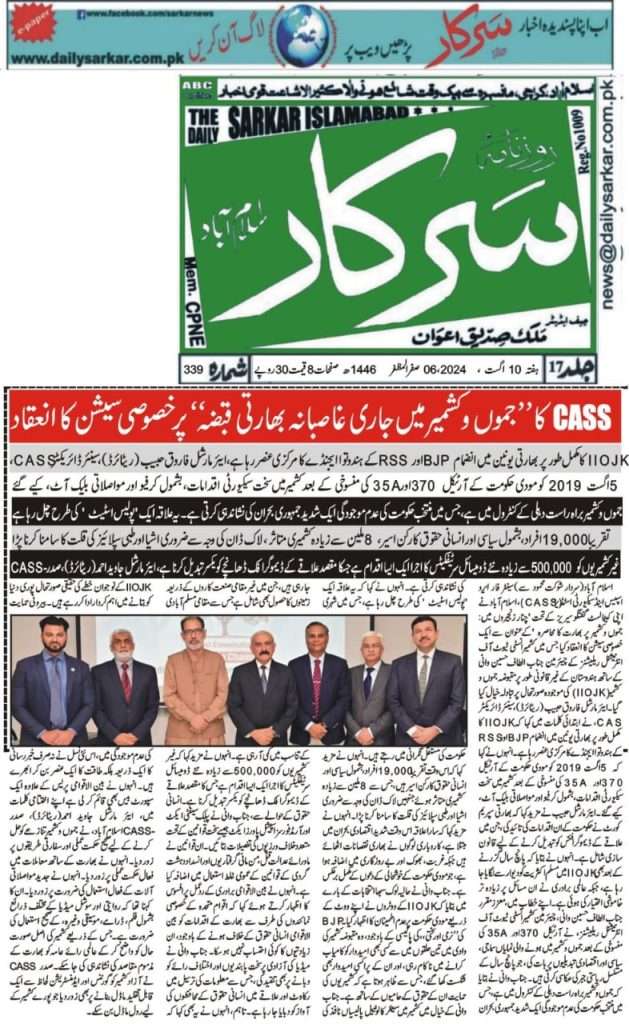
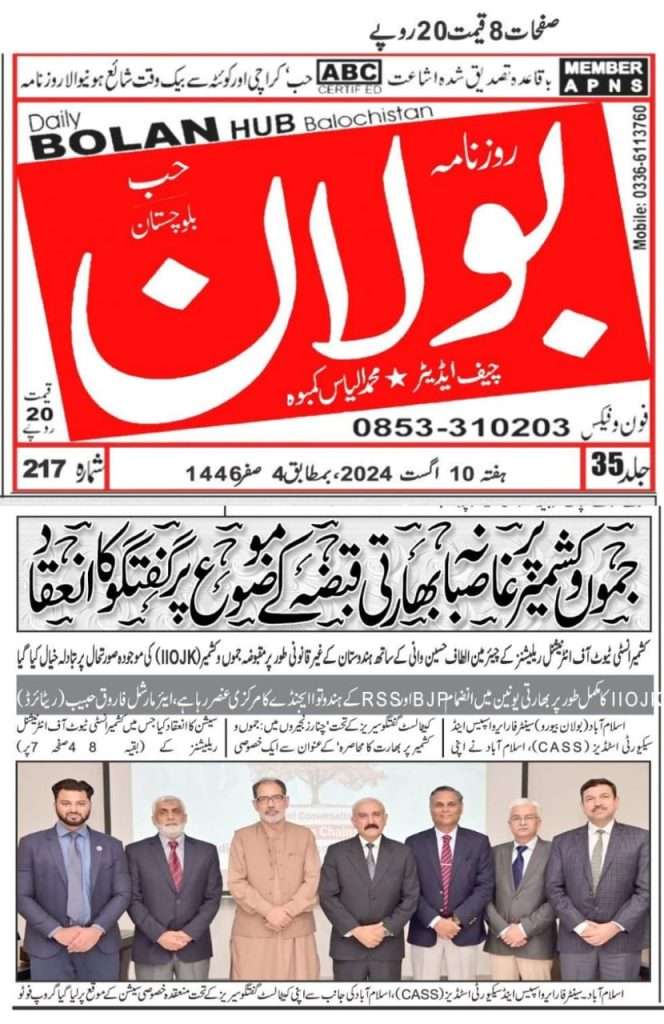
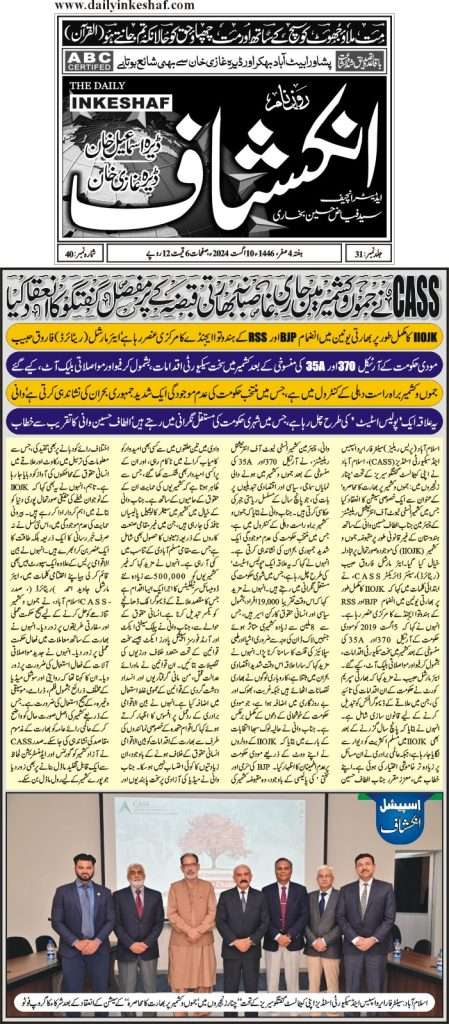
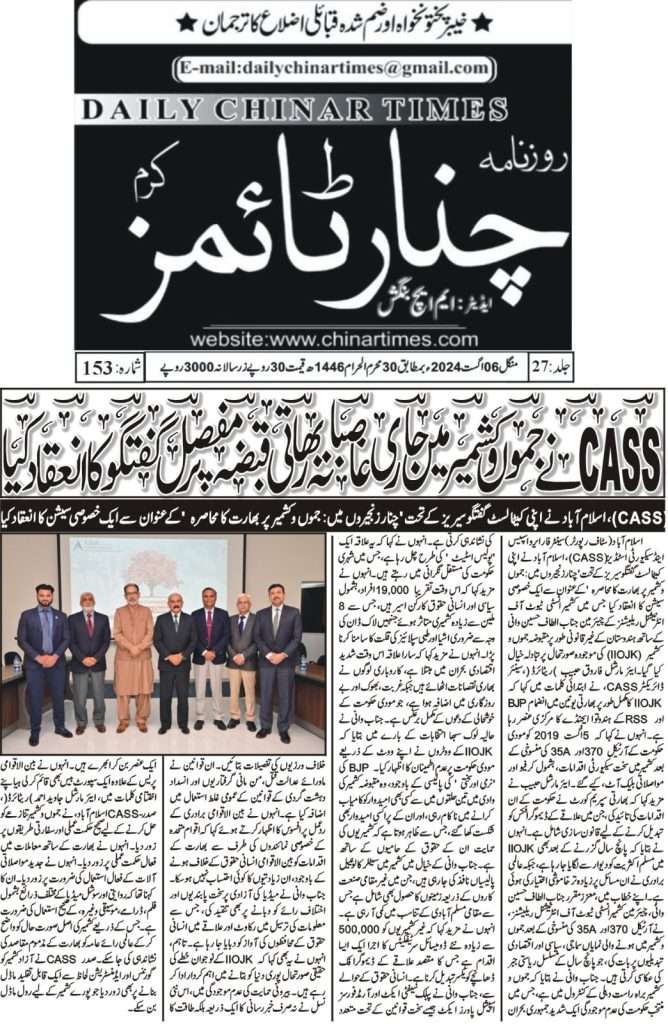
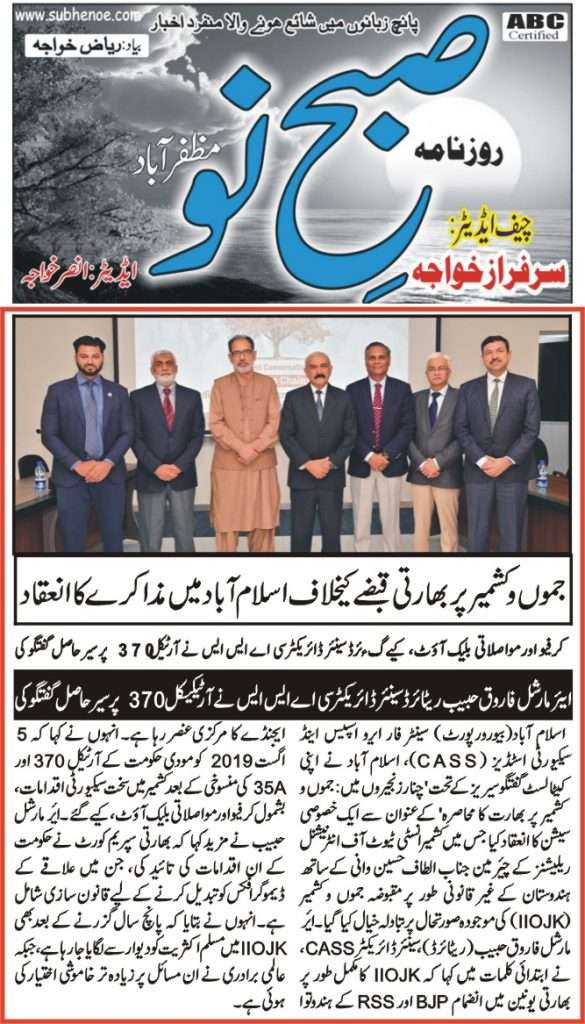
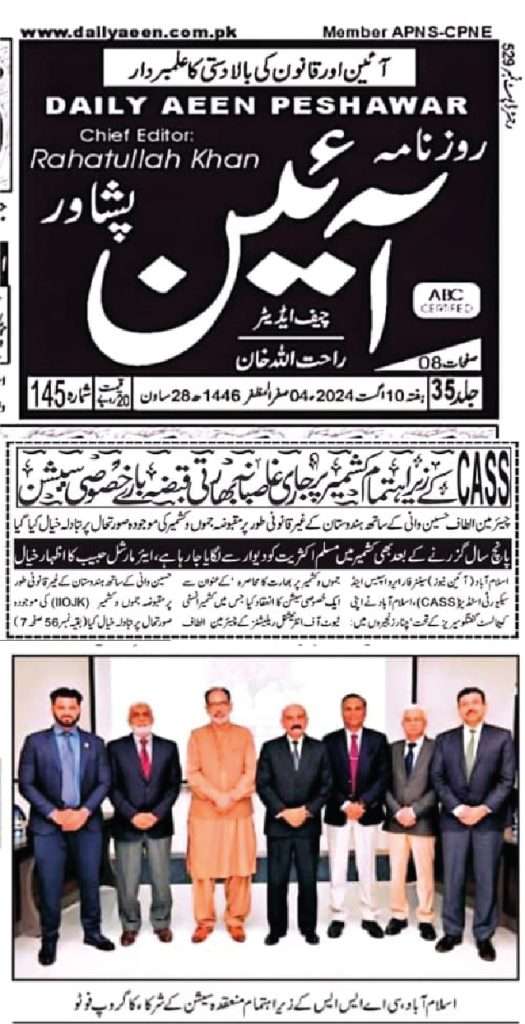
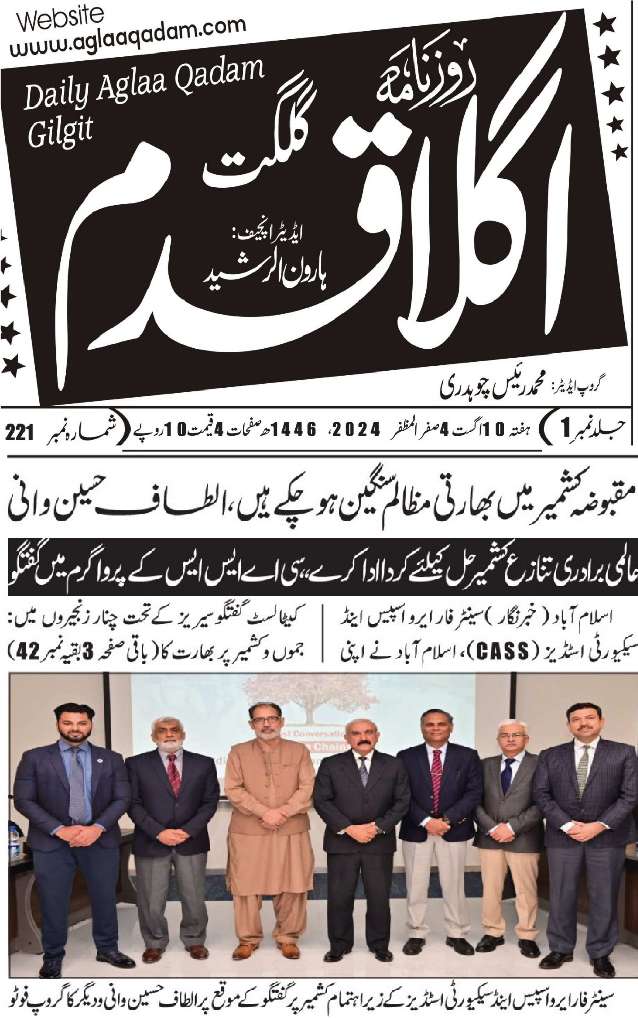
Newspaper Links

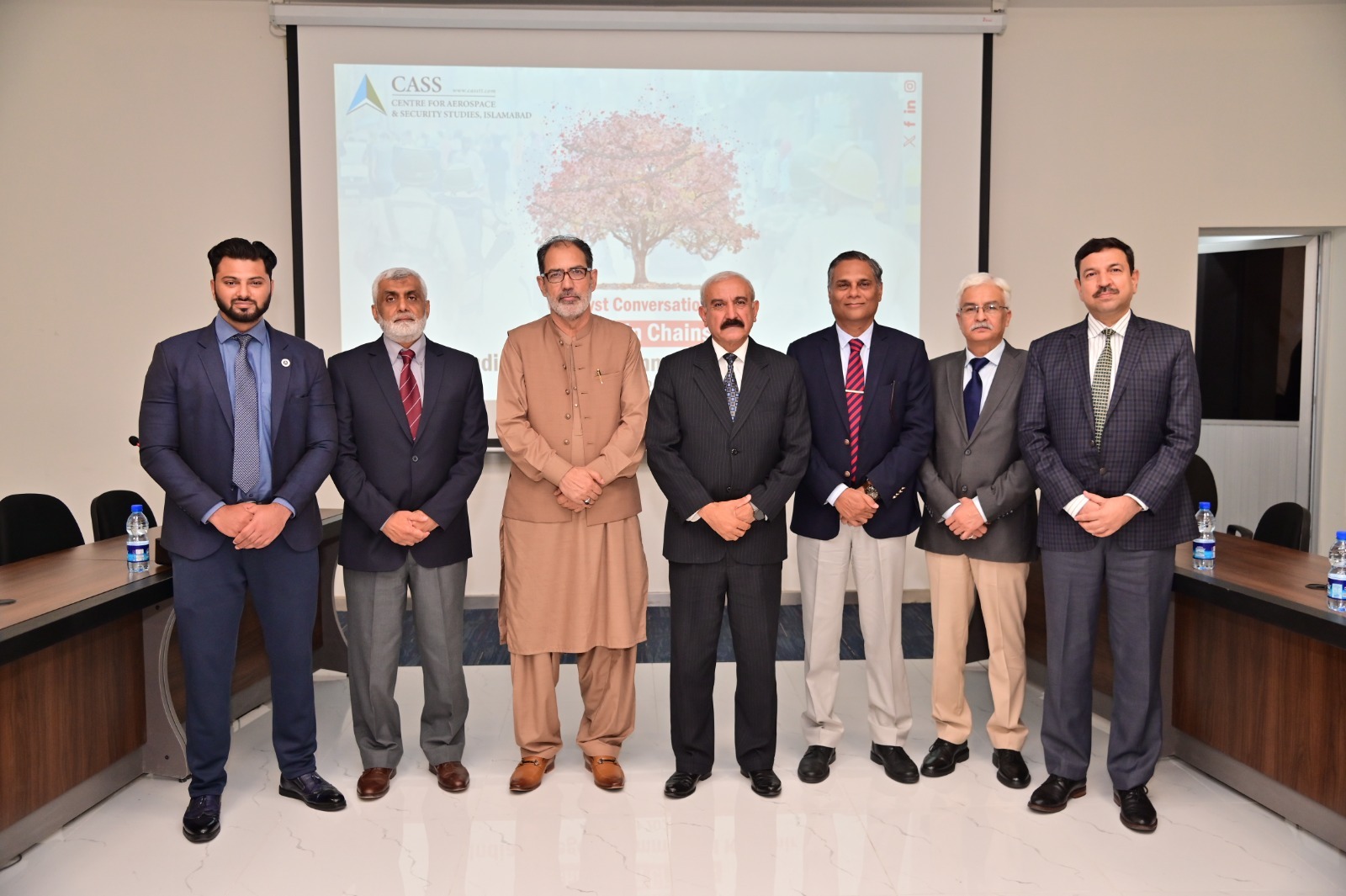

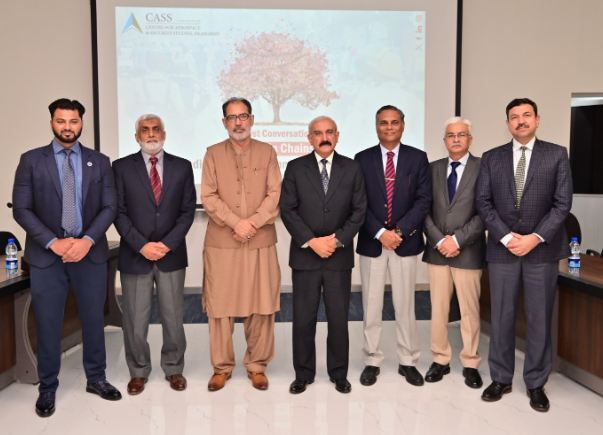

https://pakistanintheworld.pk/live/global-strategic-threat-response-international-seminar-by-centre-for-aerospace-security-studies/

